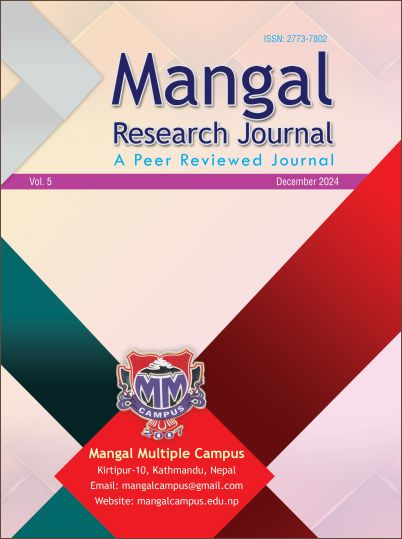Virtual Learning Practices in the Faculty of Humanities and Social Sciences at Mid-West University during the COVID Pandemic
DOI:
https://doi.org/10.3126/mrj.v5i01.73472Keywords:
Challenges, COVID Pandemic, digital tools, technology, virtual learningAbstract
This paper aims to explore the virtual learning practices in the Faculty of Humanities and Social Sciences at Mid-West University during the COVID-19 pandemic. This study employs a cross-sectional research design under the broader category of descriptive research, relying on the questionnaire as the main tool for data collection. The population comprises the first- and second-semester students of faculty of humanities and social sciences from four campuses of Mid-West University. A purposive sampling technique was utilized to select 159 students, determined using the Raosoft sample size calculator, and SPSS was used for statistical data analysis. The findings reveal that the majority of students (62.3%) received digital training, mainly focused on using Zoom, with high engagement participation rates (94.3%). However, engagement was inconsistent due to reliance on mobile data for internet connectivity (55.8%), and smartphones were the primary device for most students (87.4%). Despite these challenges, students favored live presentations and discussions, showing a preference for interactive, real-time virtual learning experiences. The study highlights the need for improved digital infrastructure. The study recommends that the stakeholders should focus on enhancing accessibility, optimizing platforms for mobile use, and providing more robust internet and device support to ensure equitable and effective virtual learning experiences in the COVID-like situation.




